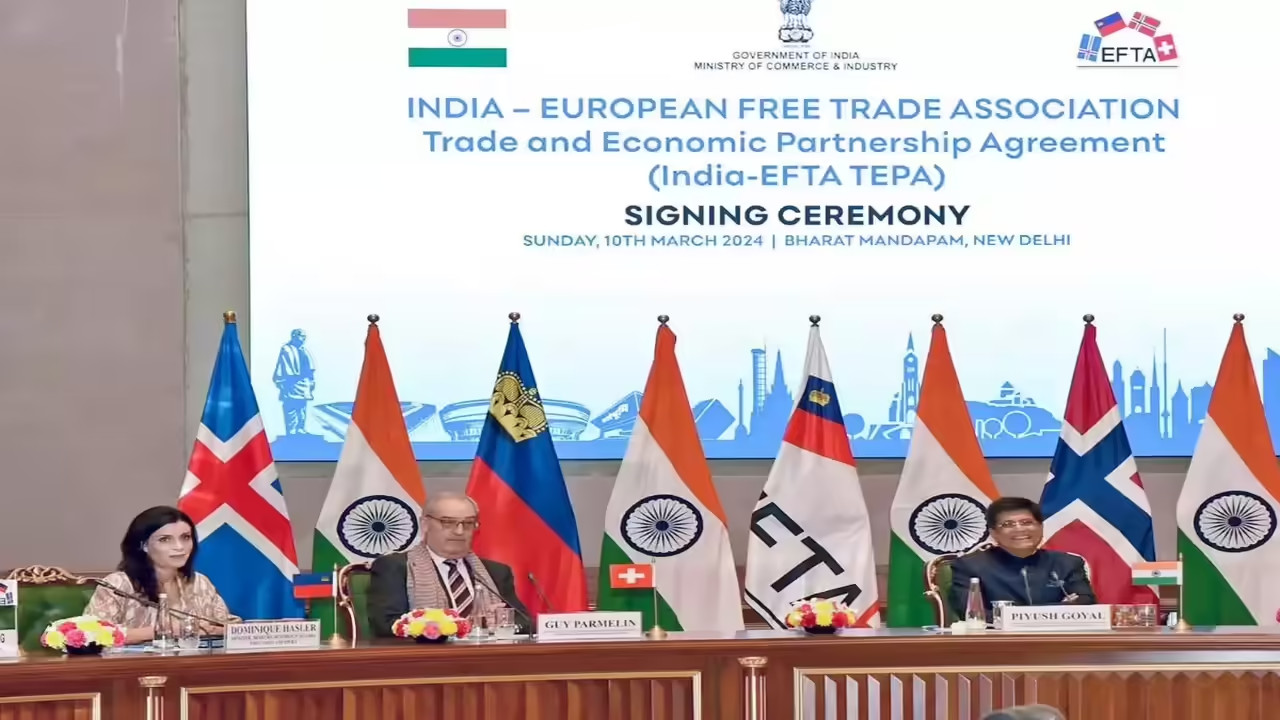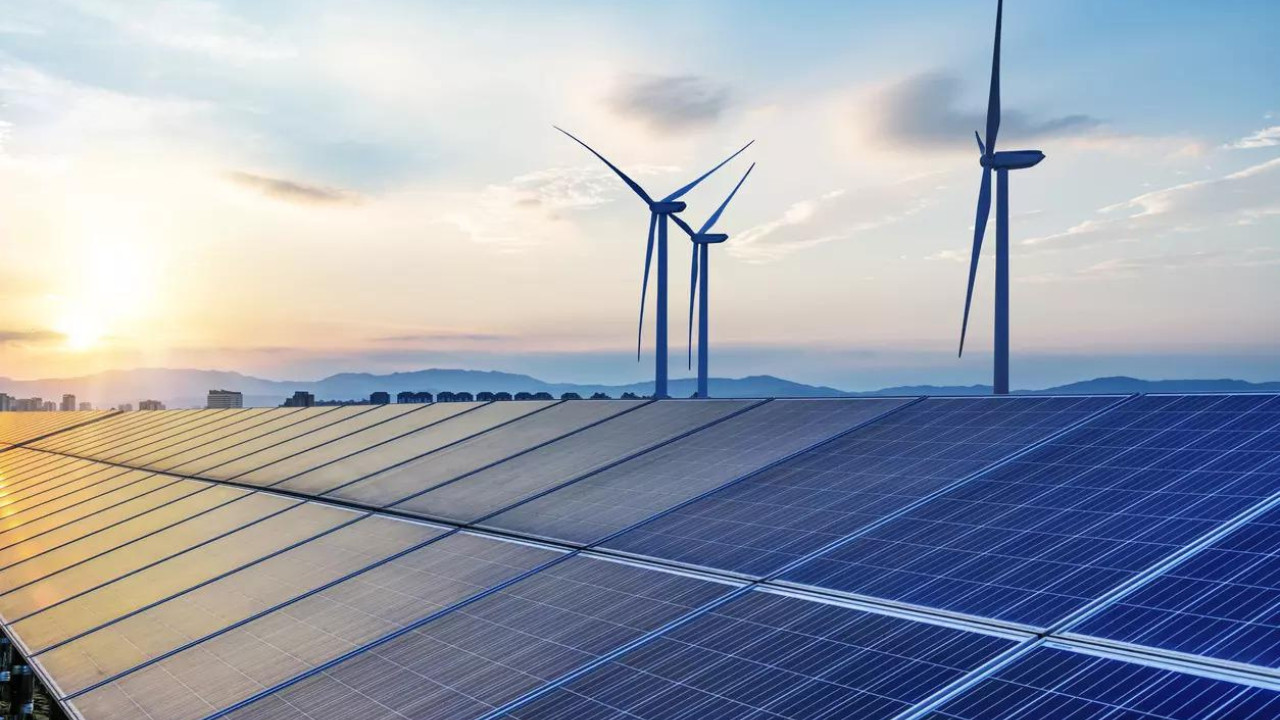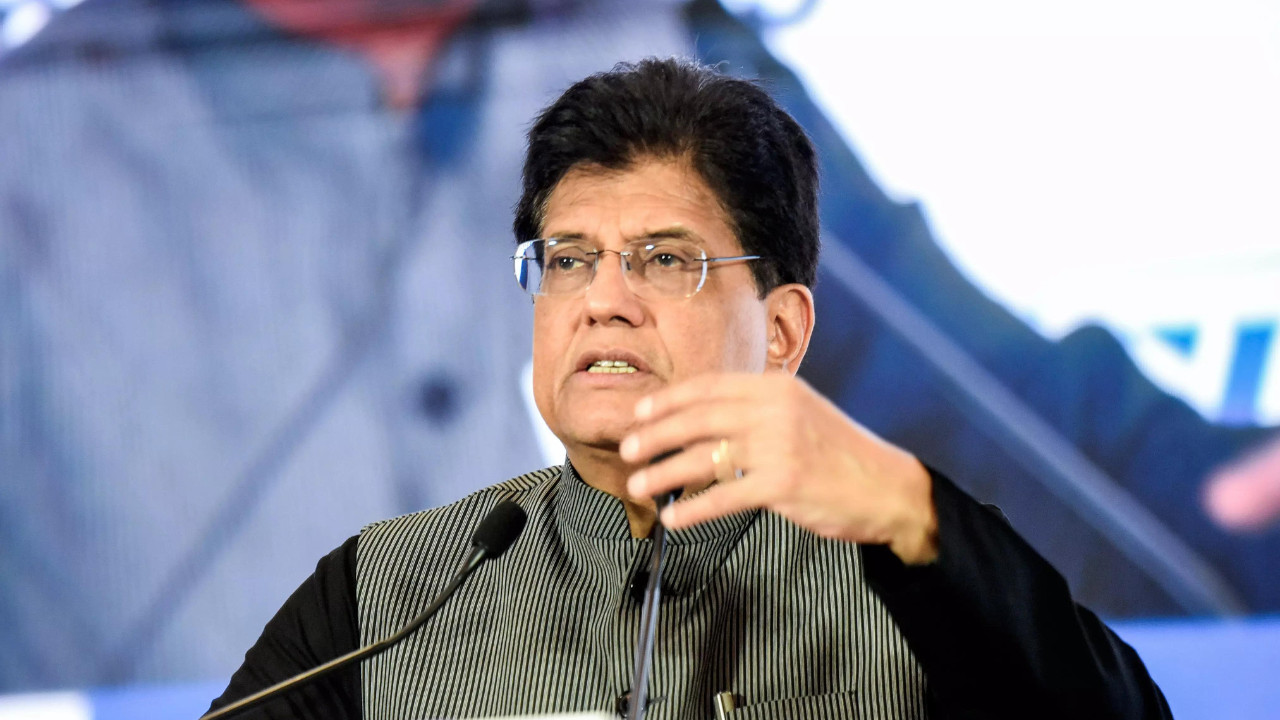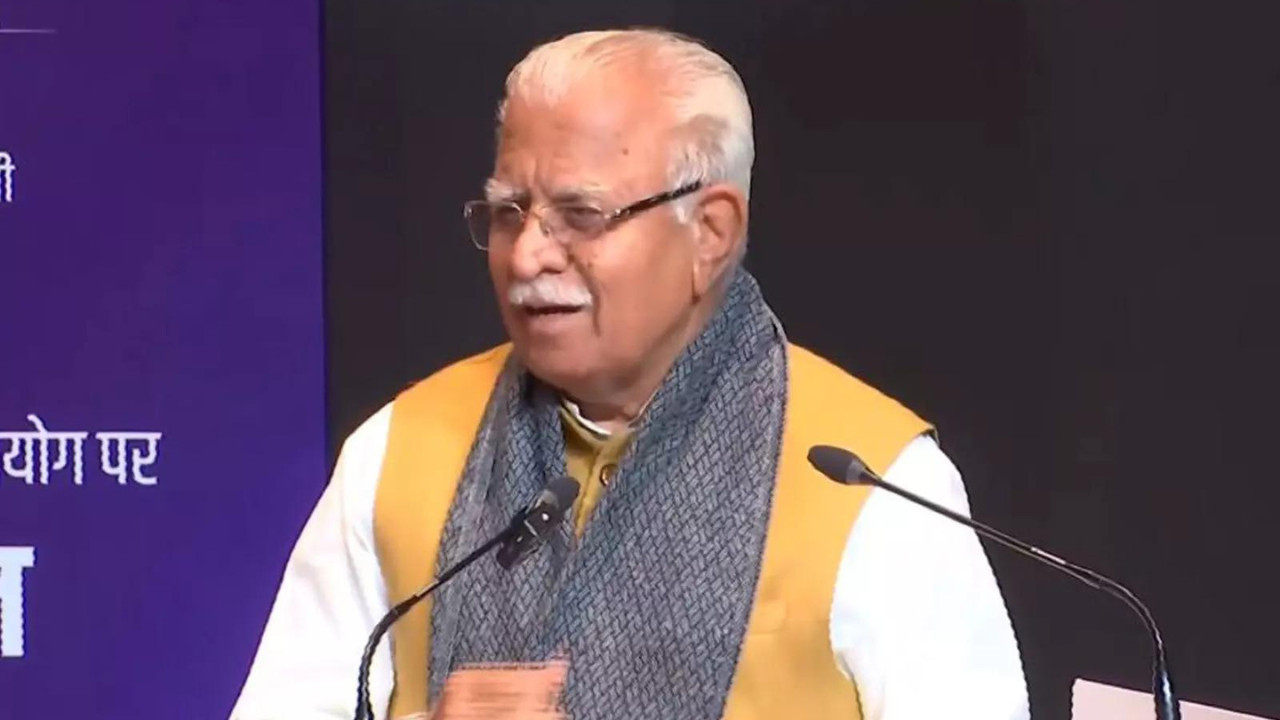Commerce and Industry Minister Piyush Goyal announced that the free trade agreement between India and the European Free Trade Association is expected to be implemented within the next few months. The agreement includes a commitment of $100 billion in investments for India over 15 years. Government is promoting high-quality manufacturing by issuing 156 quality control orders covering 672 products.
India and EFTA: A New Chapter in Trade Relations Begins Soon
The buzz around the India-EFTA (European Free Trade Association) Trade and Economic Partnership Agreement (TEPA) has been building for months, and now, it seems the wait is almost over. Union Minister Piyush Goyal recently announced that the landmark deal is expected to officially kick in within the next couple of months. This isn’t just another trade agreement; it’s a potential game-changer for India’s economic landscape, promising a surge in investment and significant benefits for both consumers and businesses.
But what makes this deal so special? Let’s delve into the key highlights and explore what this partnership with Switzerland, Norway, Iceland, and Liechtenstein could mean for India.
A $100 Billion Investment Promise
Perhaps the most eye-catching aspect of the TEPA is the commitment from EFTA nations to invest $100 billion in India over the next 15 years. This influx of capital could fuel growth across various sectors, including manufacturing, infrastructure, and technology. Imagine the ripple effect: new jobs created, technological advancements accelerated, and a boost to India’s overall competitiveness on the global stage. The sheer scale of this investment underscores the confidence these European nations have in India’s economic potential and its position as a rising global power.

Duty Cuts: A Win for Consumers and Businesses
Beyond the headline-grabbing investment figure, the TEPA also brings significant tariff reductions on a range of goods. This translates to lower prices for consumers on imported products from EFTA countries. But the benefits extend beyond just shopping carts. Indian businesses will gain easier access to EFTA markets, opening up new opportunities for exports and expansion. This enhanced market access is crucial for Indian companies looking to diversify their customer base and integrate into global value chains.
The deal aims to eliminate or substantially reduce duties on a significant portion of goods traded between India and EFTA nations. This includes products like machinery, pharmaceuticals, and processed foods. The specifics of these tariff reductions are complex, involving different timelines and product categories, but the overall direction is clear: a more open and integrated trading relationship. For more information on India’s evolving trade policies, consider reading our analysis of recent Free Trade Agreements.
Navigating the Fine Print: Challenges and Opportunities
While the potential benefits of the India EFTA agreement are substantial, it’s important to acknowledge the potential challenges. Successfully implementing the agreement will require careful navigation of complex regulatory frameworks and effective coordination between government agencies and businesses. Ensuring that Indian businesses are equipped to compete effectively in the EFTA market is also crucial. This may involve investments in skills development, infrastructure upgrades, and improved access to financing.
Furthermore, the devil is often in the details. Understanding the specific rules of origin, sanitary and phytosanitary regulations, and other technical requirements will be essential for both Indian and EFTA companies. Adequate information dissemination and capacity building programs will be vital to ensure that businesses can fully leverage the opportunities presented by the agreement.
A Forward-Looking Partnership
The India-EFTA trade deal is more than just a commercial agreement; it’s a strategic partnership that reflects a shared commitment to free and fair trade, economic growth, and sustainable development. As Minister Goyal aptly points out, this agreement is poised to bring significant benefits to both sides, fostering closer economic ties and creating new opportunities for collaboration. The next couple of months will be crucial as both sides finalize the necessary procedures for the agreement to take effect. The anticipation is palpable, and the potential rewards are immense. The India EFTA partnership is a significant development, marking a new era of cooperation and growth.
Conclusion: A Promising Future for Trade
The impending implementation of the India-EFTA TEPA signifies a major step forward in India’s global trade strategy. The anticipated surge in investment and the reduction of tariffs promise a multitude of benefits, paving the way for economic growth and enhanced international cooperation. While challenges undoubtedly remain, the potential rewards for both India and the EFTA nations are substantial, suggesting a promising future for this evolving trade relationship.







